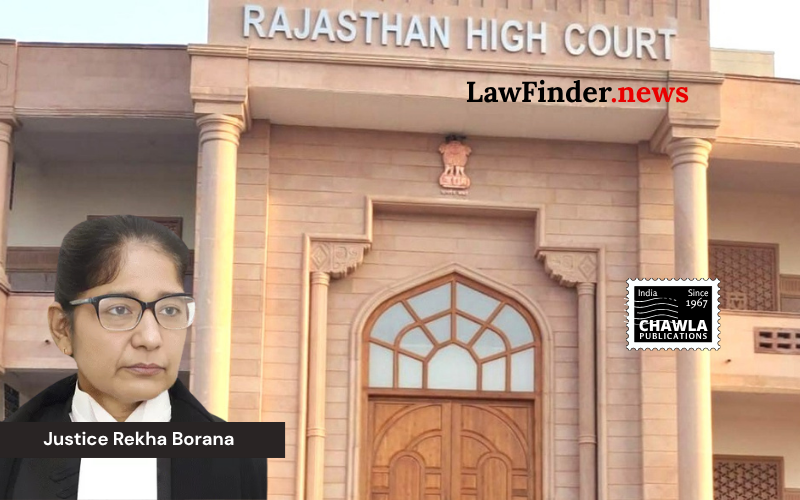Rajasthan High Court Enhances Compensation for Victims in Jodhpur Motor Accident Case. Tribunal's Deduction for Contributory Negligence Overturned; Full Compensation Awarded to Claimants
In a landmark judgment, the Rajasthan High Court has overturned a previous decision by the Motor Accident Claims Tribunal, enhancing compensation for the victims of a tragic motor vehicle accident that occurred near Bhungra Village in 2015. The Court ruled that the contributory negligence of a driver could not be vicariously attributed to the passengers of the vehicle, thereby entitling the legal heirs to full compensation.
The appeals, filed by the heirs of the deceased occupants, challenged the Tribunal's earlier decision which had deducted 40% of the compensation on account of contributory negligence. The accident involved a reckless collision with a truck, resulting in the death of all occupants of the car, including a minor child.
The Court, presided over by Ms. Rekha Borana, J., highlighted significant errors in the Tribunal’s approach. It was observed that the Tribunal had erroneously deducted a portion of the compensation based on the driver's negligence, which legally cannot affect the compensation due to the passengers or their heirs.
The judgment also addressed the assessment of the deceased's income, where the Tribunal had previously based the compensation on minimum wages for semi-skilled workers. The High Court, acknowledging the occupation and skills of the deceased, recalculated the compensation based on wages for highly skilled workers, thereby substantially increasing the amount awarded to the claimants.
In the specific case of a 13-year-old deceased child, the Court upheld the Tribunal's compensation award of Rs.5,00,000, aligning it with the Supreme Court's precedent in Kishan Gopal v. Lala & Ors. However, the deduction for contributory negligence was reversed, ensuring the full amount was awarded to the legal heirs.
The ruling emphasizes the legal principle that contributory negligence of a driver cannot be imputed to passengers or their heirs, ensuring justice for the victims of road accidents. The respondent Insurance Company has been directed to deposit the full amount of compensation, with interest, to the claimants within a specified timeframe.
This judgment reinforces the rights of accident victims and sets a precedent for similar cases, ensuring that victims' families receive fair and just compensation without unwarranted deductions.
Bottom Line:
Contributory negligence of the driver cannot be vicariously attributed to the passengers of the vehicle for deduction of compensation. The award amount must be calculated based on the deceased's occupation, earnings, and the nature of dependency, as supported by reliable evidence.
Statutory provision(s): Motor Vehicles Act, 1988, Section 166
Ramesh Kumar v. Baj Singh, (Rajasthan) : Law Finder Doc Id # 2782980




